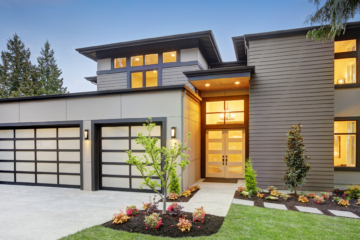How Much Home Should You Buy? Conventional wisdom says you should buy as much home as you can possibly afford and own it long enough to build equity over time. But that only works if you choose the right home.

Choose Wisely
To choose wisely, you have to see as far into the future as possible. The trick with buying a home is getting as much as you can on your wish list without becoming house poor. House poor means you can afford your house payments but you can’t afford to do much of anything else. This is why lenders have a conforming loan standard that they as benchmark for pre-qualifying you as a borrower. This is true whether you’re a first-time home buyer or a millionaire move-up buyer.
Typically, you want your house payment to be within 30 percent of your gross annual income. While you may be able to get a bigger loan with a smaller income, the 30 percent rule should keep your payments affordable enough that you can afford to buy furniture, pay off student loans, or whatever you may need extra money to do. Qualifying to buy a home is only the first step. You also want to be able to handle surprise expenses that come your way; this includes repairs, a spike in the cost of utilities, remodeling or ongoing maintenance costs.
Talk To Your Lender
The amount you qualify for directly effects the compromises you make in consideration for purchase of a home. If you factor in other considerations, you may find that living with a little less house is safer for you financially. You can always look for a smaller home in a better neighborhood, or if size is important, look for a larger home adjacent to your dream neighborhood. Can you possibly borrow more money and have it all with no compromises? Yes, it’s possible, depending on your credit scores and your other debt obligations. You can always get an adjustable rate loan, but in a low-interest environment like we have now, your annual adjustments will certainly be higher.
Talk to your lender and see what you can qualify for before you go shopping for a home. Lock in your rate, so you can calculate your payments and obligations accurately. Be sure to add in what you’ll pay in property taxes by calculating the tax rate against your purchase price. Knowing what you have available to spend will help you determine how much house to buy.
- How long will you likely live in the home and how large will your household be?
- How many bedrooms and baths do you think you’ll need?
- How much space do you require for hobbies or a home office?
- Where do you want to live – near work, in a certain school district?
- How important are amenities such as spa tubs and granite countertops?


